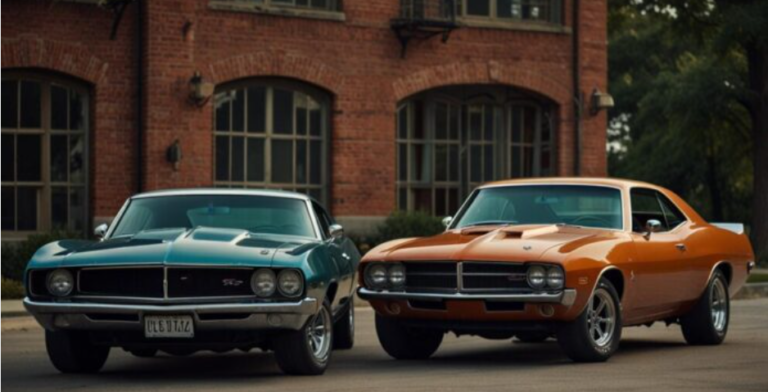Österreich: Comprehensive Overview
Austria, or Östereicj, is a country rich in culture, history, and breathtaking landscapes. From its snow-capped Alpine peaks to the bustling streets of Vienna, Austria offers an unparalleled experience for travelers and history buffs alike. Known for its music, classical architecture, and world-class cuisine, this European nation has a lot to offer. Let’s explore the multifaceted beauty of Austria, its history, culture, and why it’s one of the must-visit destinations in Europe.
A Brief History of Austria
Austria’s history is long and storied, dating back to the Roman Empire. The nation was once the seat of the mighty Habsburg dynasty, a royal family that shaped much of Europe’s history. In the 16th century, Austria became the center of the Holy Roman Empire, which helped establish its dominance in Europe. The Habsburgs ruled until the end of World War I, when the Austro-Hungarian Empire was dissolved.
After the empire’s fall, Austria became a republic, and despite the turbulence of World War II, it has since emerged as a peaceful, neutral country with a thriving economy. Today, Austria is known for its contributions to art, music, and philosophy, making it a cultural hub in Europe.
Austria’s Stunning Landscapes
One of the first things visitors notice when arriving in Austria is its diverse landscapes. The country is a paradise for nature lovers, offering everything from towering mountain ranges to serene lakes and rolling vineyards.
The Alps
The Austrian Alps dominate the country’s western and southern regions. These mountains offer year-round outdoor activities, from skiing and snowboarding in the winter to hiking and biking in the summer. Resorts like Innsbruck and Kitzbühel attract tourists from around the world for their exceptional skiing conditions.
Danube River
The Danube River is the second-longest river in Europe, flowing through several Central European countries, including Austria. The river is integral to Austria’s geography and history, serving as a trade route for centuries. Today, you can take river cruises that offer stunning views of the Austrian countryside, dotted with medieval castles and quaint villages.
Lake District
Austria’s Lake District, known as Salzkammergut, is a popular destination for its crystal-clear waters and picturesque mountain views. The town of Hallstatt, a UNESCO World Heritage site, is located in this region and is renowned for its beauty.
Austrian Culture and Traditions
Music
Austria is synonymous with music, particularly classical music. Some of the world’s most famous composers, including Wolfgang Amadeus Mozart, Ludwig van Beethoven, and Franz Schubert, were either born or spent significant time in Östereicj. Vienna, Austria’s capital, is often called the “City of Music” due to its rich musical heritage. The Vienna Philharmonic Orchestra is world-renowned, and the city’s State Opera House is a major attraction for music lovers.
Art and Architecture
Austria’s cities, particularly Vienna, are home to stunning examples of Baroque, Gothic, and Renaissance architecture. The Schönbrunn Palace, the former summer residence of the Habsburgs, is one of Austria’s most iconic landmarks. The Belvedere Palace and St. Stephen’s Cathedral are other architectural marvels that showcase Austria’s rich history.
In terms of art, Austria has produced some notable painters, including Gustav Klimt, whose painting “The Kiss” is one of the most famous works of the 20th century. Art lovers will also enjoy the Albertina and Kunsthistorisches Museum, which house extensive collections of classical and modern art.
Festivals and Celebrations
Austria is a country that loves to celebrate its heritage. One of the most famous festivals is the Vienna Ball Season, where people dress in traditional gowns and suits to waltz the night away. Another highlight is the Salzburg Festival, which celebrates classical music and opera.
The Christmas markets in Austria are also a major attraction. These markets are held in almost every town, with the Vienna market being the most famous. People flock to these markets to enjoy traditional Austrian foods, mulled wine, and handcrafted gifts.
Austrian Cuisine
Austrian cuisine is hearty and comforting, influenced by the country’s Central European location. Here are some must-try dishes:
- Wiener Schnitzel: Austria’s national dish, made of breaded and fried veal or pork.
- Apfelstrudel: A traditional apple pastry that’s loved worldwide.
- Tafelspitz: A dish consisting of boiled beef, served with horseradish and apple sauce.
- Sachertorte: A rich chocolate cake that originated in Vienna.
The cuisine in Austria varies by region, but you’ll find delicious meals in every corner of the country. Austria also has a thriving wine industry, particularly in regions like Burgenland and Styria, where vineyards stretch as far as the eye can see.
Top Tourist Attractions in Austria
Austria is a tourist’s dream, offering something for everyone. Whether you’re interested in history, outdoor activities, or art, Östereicj has it all. Here are some top tourist attractions you shouldn’t miss:
- Schönbrunn Palace
A UNESCO World Heritage site, Schönbrunn Palace is a magnificent example of Baroque architecture. Once the summer residence of the Habsburg rulers, this palace now serves as a museum, showcasing the grandeur of Austrian royalty.
- The Hofburg
Located in the heart of Vienna, The Hofburg was the seat of the Habsburgs for over 600 years. Today, it houses the offices of the Austrian president and several museums, including the Sisi Museum, dedicated to Empress Elisabeth.
- TheVienna State Opera
No visit to Vienna is complete without attending a performance at the Vienna State Opera. This iconic venue is one of the most famous opera houses in the world, hosting top-tier performances year-round.
- Hallstatt
This small village in the Austrian Alps is considered one of the most beautiful in the world. Hallstatt offers breathtaking views of Lake Hallstatt and the surrounding mountains. It’s also home to one of the oldest salt mines in the world.
- Salzburg
The birthplace of Mozart, Salzburg is a must-visit for music lovers. The city is known for its well-preserved baroque architecture and hosts the annual Salzburg Festival, celebrating classical music and opera.
The Unique Charm of Austrian Towns
Austria isn’t just about big cities like Vienna and Salzburg; its smaller towns are equally charming and offer a glimpse into traditional Austrian life.
Innsbruck
Nestled in the Alps, Innsbruck is known for its winter sports. It has twice hosted the
Winter Olympics and is a popular destination for skiing and snowboarding enthusiasts. The town itself is rich in history, with colorful medieval buildings and the famous Golden Roof, a landmark in Innsbruck’s old town.
Graz
Austria’s second-largest city, Graz, is a UNESCO World Heritage site thanks to its well-preserved medieval architecture. The city is a mix of the old and new, with a lively student population and a burgeoning art scene. The Schlossberg, a hill in the center of Graz, offers stunning panoramic views of the city.
Linz
Situated along the Danube River, Linz is a dynamic city blending modern innovation with historical charm. It’s known for its electronic arts scene and hosts the annual Ars Electronica Festival, which showcases cutting-edge digital art and technology.
Outdoor Adventures in Austria
Austria is a paradise for outdoor enthusiasts. Whether you’re a seasoned mountaineer or a casual hiker, there are plenty of activities to keep you entertained.
Skiing and Snowboarding
Austria’s Alps are world-famous for skiing and snowboarding. Resorts like St. Anton and Zell am See offer some of the best slopes in Europe. With well-maintained facilities, Austria attracts winter sports enthusiasts from across the globe.
Hiking and Cycling
For those visiting in the warmer months, Austria offers an abundance of hiking and cycling trails. The Austrian Alps are home to numerous well-marked trails, catering to all levels of fitness. You can enjoy leisurely walks through the rolling hills or challenge yourself with a trek up the mountains.
Water Sports
The many lakes and rivers in Austria offer opportunities for water-based activities. From paddleboarding on the crystal-clear waters of Lake Wolfgang to white-water rafting on the Inn River, there’s something for everyone. Austria’s lakes are also perfect for swimming, especially during the summer months.
Austria’s Contribution to Science and Philosophy
In addition to its cultural contributions, Austria has a strong legacy in the fields of science and philosophy. Some of the world’s most influential thinkers hailed from Austria.
Sigmund Freud
Sigmund Freud, the father of psychoanalysis, was born in Austria. His work revolutionized the way we think about the human mind and behavior, laying the foundation for modern psychology.
Ludwig Wittgenstein
Another Austrian intellectual giant, Ludwig Wittgenstein, made significant contributions to philosophy, particularly in the fields of logic, language, and the philosophy of mind. His work continues to be studied and debated by philosophers today.
Erwin Schrödinger
Physicist Erwin Schrödinger, known for his work in quantum mechanics, was also born in Austria. His famous thought experiment, “Schrödinger’s Cat,” remains one of the most well-known concepts in modern physics.
Conclusion
Austria, or Östereicj, is a country that offers something for everyone, from stunning natural landscapes to a rich cultural and intellectual history. Whether you’re exploring the grandeur of Vienna’s palaces, skiing in the Alps, or soaking in the beauty of Hallstatt, Austria leaves a lasting impression on all who visit. Its music, art, architecture, and philosophy continue to shape the world, making it a truly unique destination.
If you’re looking for a country that blends the old with the new, combines nature with culture, and offers both adventure and relaxation, Austria is the place to be. The rich tapestry of Östereicj is waiting for you to explore.












+ There are no comments
Add yours